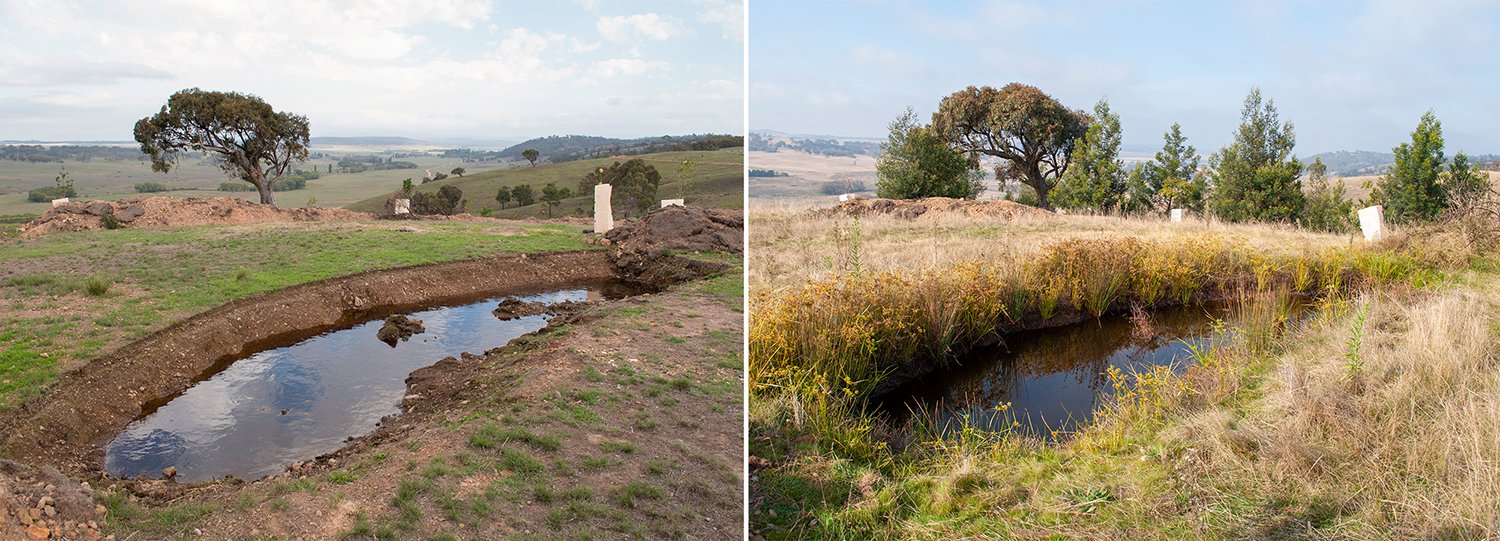Landscape rehydration results at Duralla, NSW.
We are very pleased to be notified that the NSW Government has put into regulation Mulloon Institute’s recommendation regarding landscape rehydration.
Specifically, the NSW Planning Minister the Honourable Anthony John Roberts MP gazetted an amendment to the Transport & Infrastructure State Environment Planning Policy (ISEPP) titled, “Development permitted without consent – landscape rehydration infrastructure works”.
This amendment will apply to lands zone Primary Production (RU1), Rural Landscape (RU2) and Primary Production Small Lots (RU4). It defines, “landscape rehydration infrastructure works” as “works involving placing permeable structures on the bed of a stream to reduce erosion and maintain or restore flows for ecological purposes, not including works designed to impound water or impede the passage of fish”.
This is a significant step forward in reducing the bureaucratic hurdles experienced by us in our endeavours to rehydrate Australia, as it removes the need for a development application (DA) and the various other requirements that a DA can entail. Landscape rehydration infrastructure works will still require a ‘controlled activity approval’ under the Water Management Act 2000 and may require a licence under the Crown Land Management Act 2016.
This significant change would never have occurred if our Mulloon Law Committee (MLC), led by our recently appointed Board Director, Matt Egerton-Warburton, hadn’t taken this problem to the NSW Government with a proposed solution. It has taken well over two years to get to this point, but we got there. The MLC pursued this because we knew first-hand that landscape rehydration infrastructure should not be considered in the same vein as developments that could impact negatively on the environment. The NSW Government agreed.
During negotiations with the NSW Government, we also recommended that a Code be developed to streamline approvals even more. While there was support for such a proposal, the Department was unable to commit to the development of it. So, Mulloon Institute has decided to undertake the writing of a Code with the assistance of Dr Gerry Bates from our Law Committee, together with Mulloon’s Peter Hazell and Dr Laura Fisher. They plan to have a draft ready to lodge with government early in 2023. Infrastructure built under an approved Code would reduce the regulatory burdens in the same way other developments, such as buildings, comply with a Code. Watch this space!
READ the related Media Release:
NSW Government leads Australia with progressive legislation to heal our waterways, 9 December 2022
